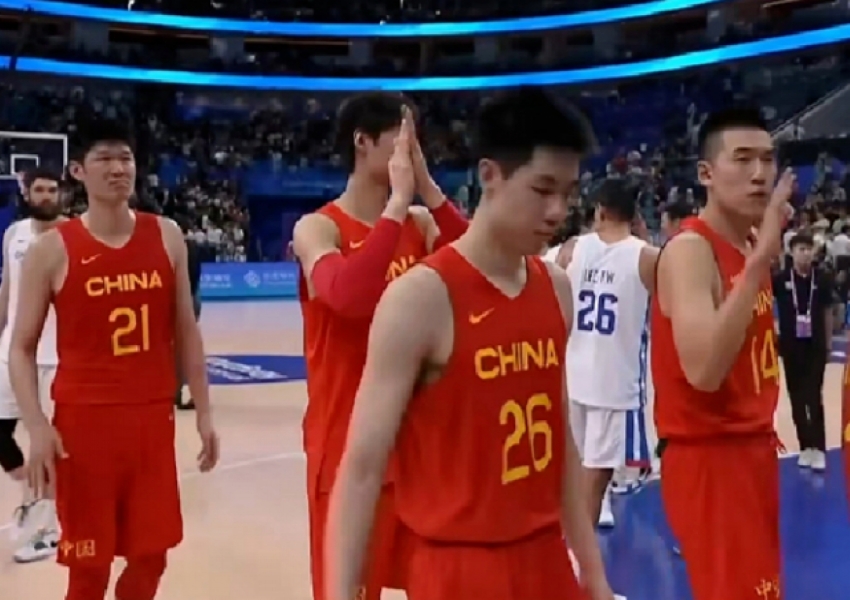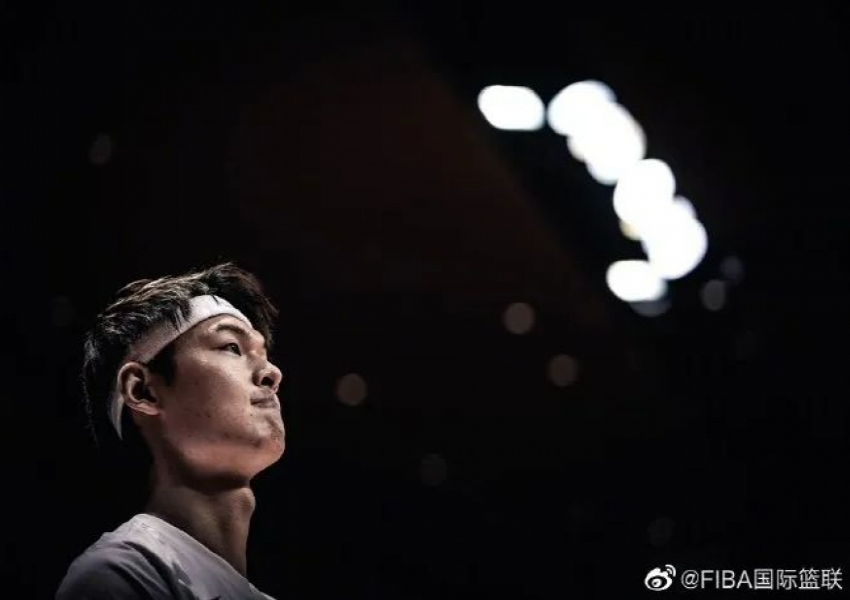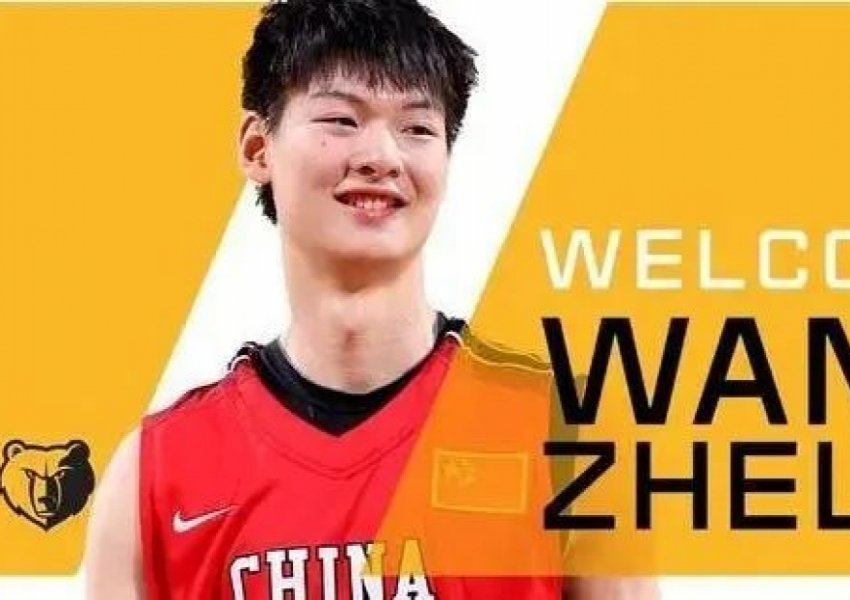Too Much to Bear! Wang Zhelin’s Child in ICU! The Internet Mob Destroys the Chinese National Basketball Captain...
In a recent revelation on a television program, former national player Meng Duo shed light on the real reason behind Wang Zhelin's poor performance in last year's FIBA World Cup. Meng disclosed that Wang's child was in the ICU during the tournament, causing Wang to be unable to fully concentrate on his game.

It's essential to acknowledge that the overwhelming criticism Wang faced at the time was due to his undeniably poor performance on the court. During the World Cup, Wang averaged only 12.5 minutes per game, scoring 3.7 points, grabbing 4 rebounds, and making 0.7 assists per game. His shooting and free-throw percentages were alarmingly low at 40% and 37.5%, respectively, with a plus-minus average of -17.3 per game. His performance in the Asian Games wasn't much better, averaging 6.5 points and 4.3 rebounds per game, relegating him to the third center position behind Hu Jinqiu and Yu Jiahao.

When Adian learned that Wang continued to play for the Chinese national team despite his child's critical condition, he felt profound respect and admiration for Wang. After the World Cup, instead of returning home to be with his child, Wang continued to play in the Hangzhou Asian Games, despite facing enormous public pressure. It must be emphasized that while one can criticize Wang's performance, questioning his dedication and passion for representing his country is unwarranted.

The program's host, Yang Yi, drew parallels between Wang's situation and a similar incident involving Zhou Peng in 2015. During the 2015 FIBA Asia Championship, Zhou Peng's daughter was admitted to the ICU with a severe illness. Despite the personal turmoil, Zhou continued to lead the Chinese national team to reclaim the Asian championship. In 2022, during the fifth window of the FIBA World Cup qualifiers, Wang was appointed team captain by then-head coach Du Feng. Wang lived up to expectations, scoring a combined 50 points and grabbing 21 rebounds in two games, helping secure China's spot in the World Cup.
However, his disappointing performances in the World Cup and the Asian Games tarnished his previously earned reputation. Despite years of dedicated service to the national team, Wang's failures overshadowed his contributions. Still, knowing that Wang continued to play for his country while his child was in the ICU might change public perception of him.
Looking ahead, it’s unlikely that the 30-year-old Wang will return to the national team. Even with Guo Shiqiang at the helm, Wang seems to have lost the trust of the Chinese Basketball Association. Another reason is the national team's focus on developing younger players for the next World Cup in three years and the Olympics in four years, making Wang’s age a significant factor against him.
Time can’t completely erase scars, but it can gradually heal the pain. In two or three years, the harsh criticism Wang faced may fade, and some might even look back and appreciate his contributions. Wang was the 57th pick in the second round of the NBA Draft and a two-time CBA MVP, with many memorable moments for the national team.
Currently, none of the young centers like Yang Hansen, Yu Jiahao, or Jiao Boqiao in the Chinese national team can match Wang’s past achievements. In closing, we sincerely thank Wang Zhelin for his dedication to Chinese basketball and wish him continued success and happiness in his career and family life. We hope he achieves his dream of winning a CBA championship to complete his career grand slam.
Wang Zhelin’s Struggles and Dedication
The story of Wang Zhelin is a testament to the often unseen personal struggles athletes endure. Despite facing one of the most challenging times in his life with his child in the ICU, Wang continued to don the national jersey and compete. His subpar performance in the World Cup was understandable given the circumstances, yet the backlash he received was relentless. Fans and critics were quick to label him a failure without knowing the full story.
Public Criticism and the Reality of Athletes’ Lives
Athletes are often held to superhuman standards, expected to perform at their best regardless of personal issues. Wang’s situation highlights the need for empathy and understanding. His decision to keep playing, despite his child’s critical condition, speaks volumes about his commitment to his team and country. This dedication should not be overlooked or forgotten.
The Impact of Wang’s Absence on the National Team
The Chinese national team’s current focus is on grooming younger players for future international competitions. Wang’s absence will undoubtedly be felt, but his legacy and contributions set a high standard for the next generation. Players like Yang Hansen, Yu Jiahao, and Jiao Boqiao have big shoes to fill, and Wang’s journey can serve as an inspiration for them to persevere through challenges.
Reflecting on Wang’s Career
Wang’s career has seen its share of highs and lows. From being drafted by the NBA to becoming a CBA MVP and representing China on numerous occasions, his achievements are significant. The criticism he faced during the World Cup and Asian Games should not overshadow his contributions to Chinese basketball. As time passes, the narrative will hopefully shift to a more balanced view, appreciating both his strengths and struggles.
Future Prospects for Wang Zhelin
At 30, Wang still has several years of professional basketball ahead of him. His focus will likely shift to achieving personal milestones, such as winning a CBA championship. This goal would not only complete his career but also bring a sense of fulfillment and closure. Wang’s experience and leadership will continue to be valuable, whether on the court or as a mentor to younger players.
Conclusion
Wang Zhelin’s story is a poignant reminder of the human side of athletes. His unwavering dedication to his team despite personal hardships deserves recognition and respect. While his future with the national team may be uncertain, his legacy is firmly established. Wang’s journey offers lessons in resilience, commitment, and the complexities of balancing personal and professional life.
As fans and analysts, it’s crucial to remember that athletes are more than their performances. They are individuals with their own battles, and understanding this can foster a more compassionate and supportive sports community. Wang Zhelin’s contributions to Chinese basketball will be remembered, and his story will inspire many for years to come.
Copyright Statement:
Author: focusnba
Source: FocusNBA
The copyright of this article belongs to the author. Reproduction is not allowed without permission.
Recommended Blog
- Suns Block Bol Bol? KD Out Again! This is Team USA’s Biggest Star...
- Offseason GOAT! Entering a Contract Year, Can You Still Believe in Ben Simmons?
- Oh! Is China’s National Basketball Team Helping Cui Yongxi Get into the NBA? Sudden Announcement of Summer League Derby
- Confirmed! Another Major NBA Trade on the Horizon! Zion Finally Gets New Help...
- NBA Championship Dream Over! Trade Anthony Davis Immediately! He's Done Enough for the Lakers...
- No Talent, Rejected by 50 Colleges: Now an NBA Champion and Millionaire
- Confirmed: Warriors Secure Buddy Hield in Sign-and-Trade! Klay Thompson’s Last Gift to Golden State
- 7 Teams in 3 Years, 8 Superstar Teammates, and No Championship: How Unlucky Is Eric Gordon?
- Three Consecutive Brilliant Moves! Can the Mavericks Win the Championship Next Season?
- No Action Taken! The Best Player in the League Faces the Most Inept Management